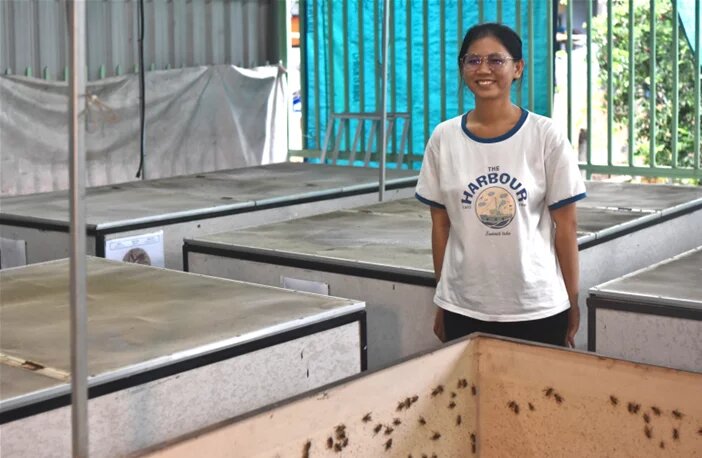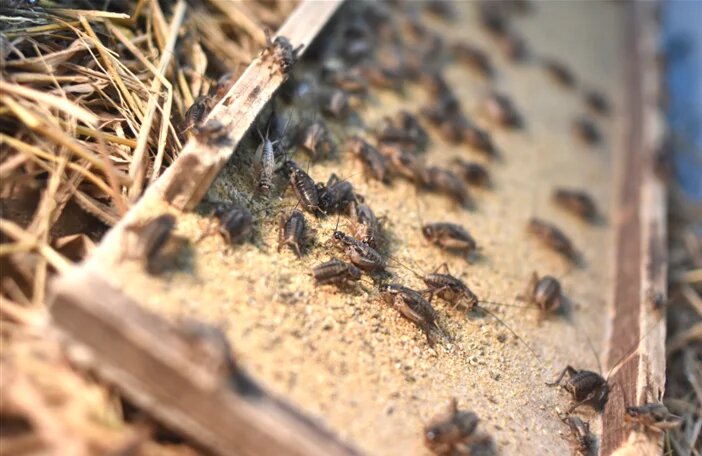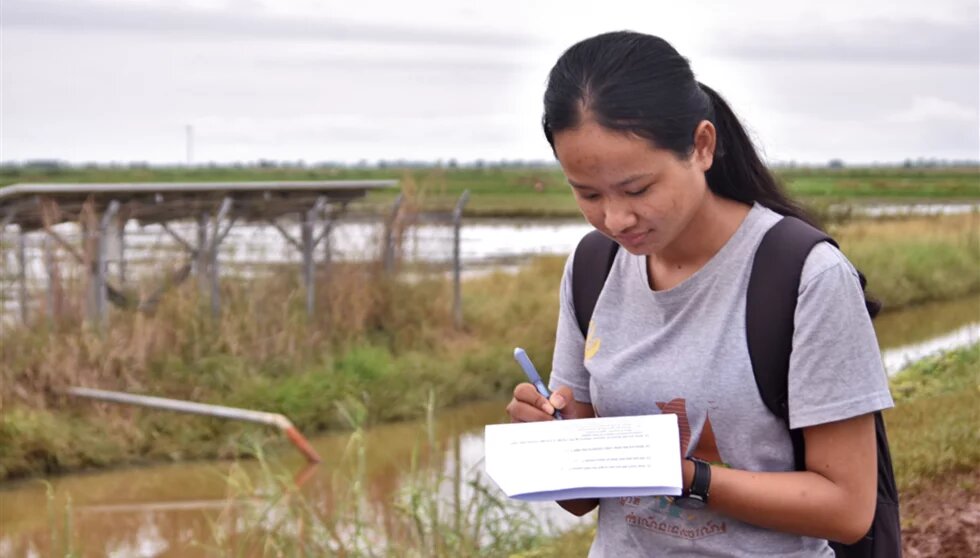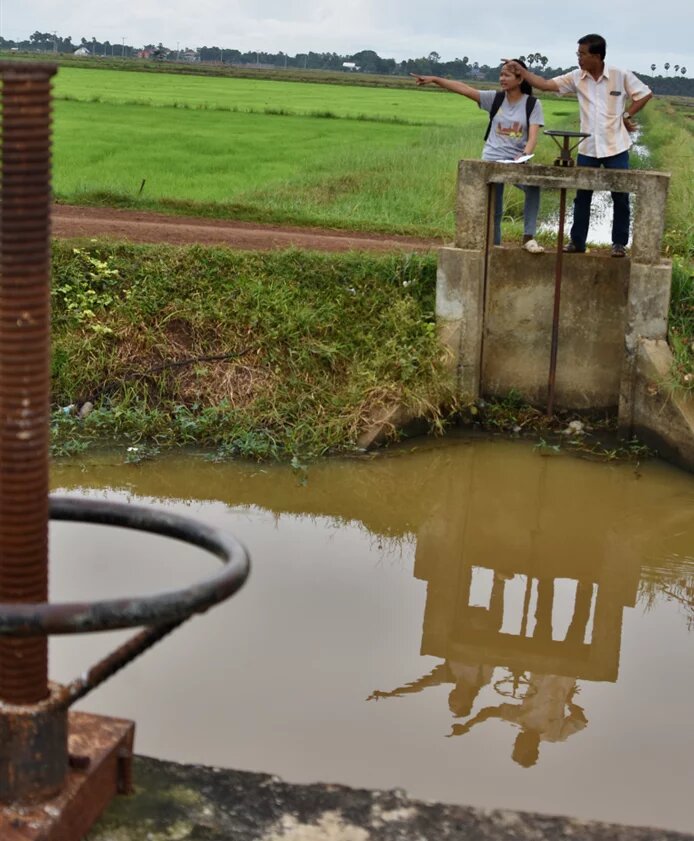

Gov Huyngim is studying food science at the Institute of Technology of Cambodia in Phnom Penh. She studies chemistry, microbiology, nutrition and food engineering in her classes. But little did she expect her bachelor's degree would get her an internship where she could use her knowledge of food sciences and combine it with the use of clean energy and sustainable practices to improve farmers' livelihoods.
Huyngim works with a cricket-producing project called AgriHouse which is supported by Energy Lab, an incubator of projects and enterprises that promote the use of clean energy in Cambodia.
The women-led business at AgriHouse has been producing crickets for the past three years, using existing knowledge about the practice combined with newer technologies to optimize yields. The project uses solar energy to control an automated system of sensors, fans and temperature and humidity controls. The reliance on clean energy to improve productivity and sustainability in existing agricultural techniques is very much in line with Energy Lab’s principles, says Lundy Chou, CEO of AgriHouse.
“They have a low ecological footprint, promote sustainability and provide income for farmers, fostering economic growth and stability. It's a solution benefiting nutrition, the environment and livelihoods,” Chou says.
Widespread consumption of crickets is not far from becoming a reality given their high nutritional value and low carbon footprint in the production processes. The Energy Lab internship is focused on connecting university students with companies working in the clean energy sector to strengthen their technical skills and give young Cambodians a platform to exhibit their innovativeness.
“With this internship, I am focusing on raising crickets and the ingredients we use to feed them. We're giving them soybean milk, corn and additives such as calcium and sometimes other leaves we grow,” she says, describing the confluence of her studies as a food science major and the technical requirements of rearing crickets.
Huyngim says she has been very involved in the entire cricket-rearing process during her internship, adding that the process takes around 45 days and is largely a hands-off operation that uses kits produced by AgriHouse.
Other modern techniques used in the process include an automatic water and ventilation system and sensors that monitor humidity and heat levels to optimize conditions for the crickets.
“With the kind of innovation we do, there's more income for the farmers and is more efficient,” she says. “Using these kinds of technologies, Cambodia can become healthier and increase support for local food systems.”
This article is an excerpt from "Profiles of Courage." Click here for the full reading.

